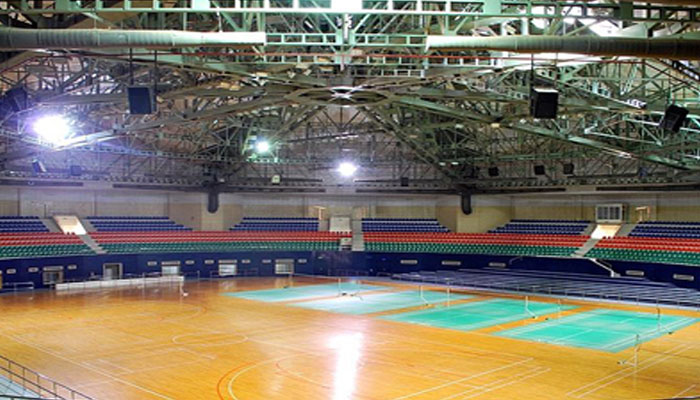Gachibowli Indoor Stadium

The Gachibowli Indoor Stadium is a multi-purpose indoor arena located in Hyderabad, Telangana, India. It was opened in 2007 and has since become one of the most popular venues in the city. The stadium has hosted a wide range of events, including sports, concerts, and exhibitions.
Dimensions:
The Gachibowli Indoor Stadium has a seating capacity of approximately 5,000 and covers an area of approximately 60,000 square feet. The stadium has a rectangular shape and measures 200 feet in length and 300 feet in width. The height of the building is 60 feet.
Facilities:
The Gachibowli Indoor Stadium features a range of facilities for visitors, including multiple dressing rooms, a warm-up area, and a gymnasium. The stadium has a VIP lounge and several conference rooms available for hire. The arena also has excellent transport links, with a nearby bus station and parking facilities.
Track surface:
The Gachibowli Indoor Stadium does not have a dedicated track surface, but it has a wooden floor that is used for sports such as badminton, table tennis, and basketball.
Field events:
Similarly, the stadium does not typically host field events, as it does not have a dedicated field space.
Events and competitions:
The Gachibowli Indoor Stadium is primarily known for hosting sports events, particularly badminton. It has been the site of several major badminton tournaments, including the Indian Badminton League and the Indian Open. The stadium has also hosted concerts and exhibitions.
Safety:
The Gachibowli Indoor Stadium places a high priority on the safety and well-being of its visitors. The stadium has implemented a range of measures to ensure the safety of visitors, including regular maintenance of its facilities and equipment, as well as a comprehensive emergency management plan. The stadium also has a team of trained security personnel on site at all times to ensure the safety of visitors.
Sustainability:
The Gachibowli Indoor Stadium has implemented several measures to reduce its environmental impact and promote sustainability. These include the installation of energy-efficient lighting, water conservation measures, and waste reduction programs. The stadium also works closely with event organizers to ensure that events hosted at the stadium are environmentally responsible.


